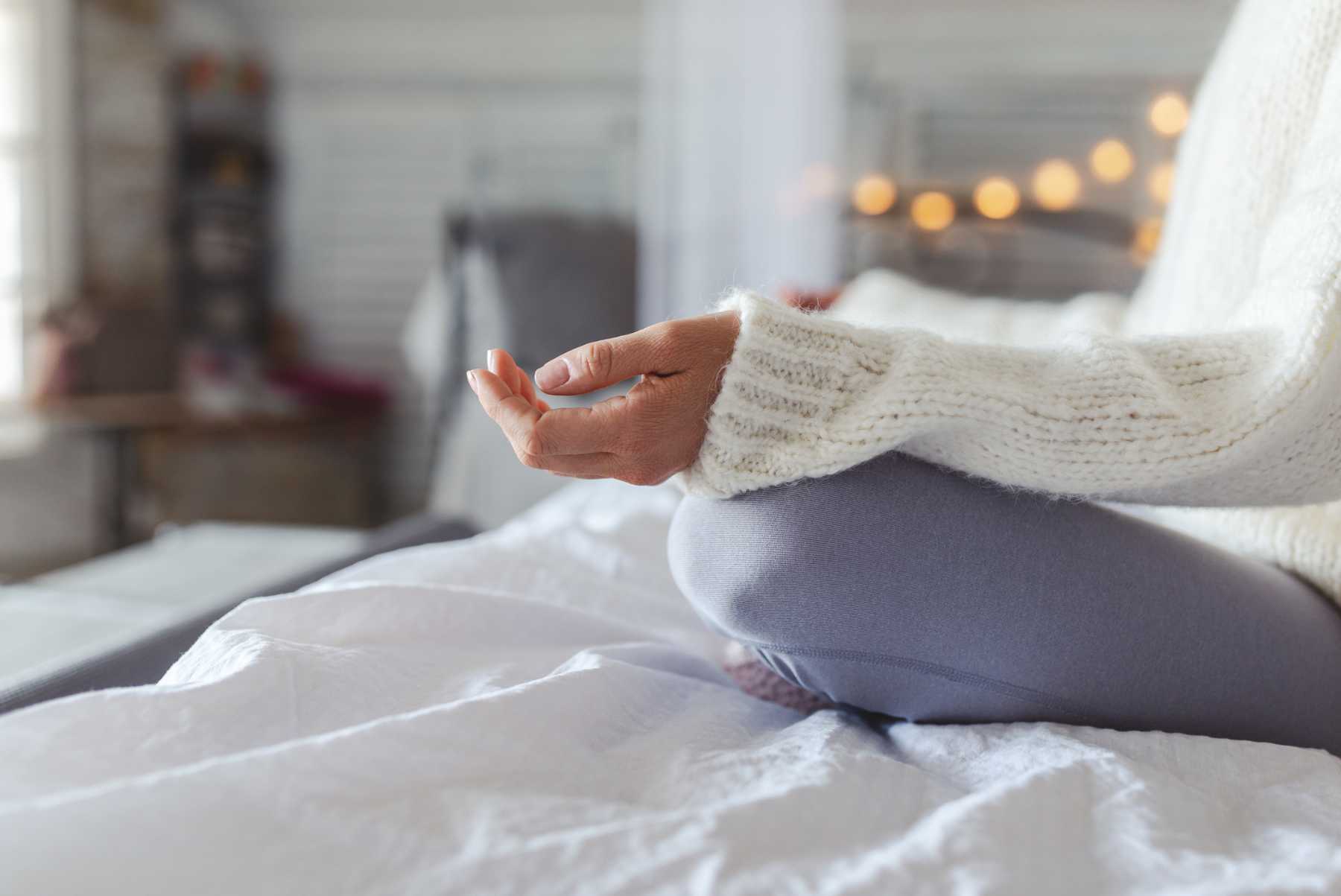6-WEEK MINDFULNESS COURSE FOR BEGINNERS

I don’t really get how you can learn meditation on Zoom. Can you explain it to me?
Zoom is a video conferencing app that you can download for free to a computer, laptop, tablet or smartphone. It’s similar to Google Meet, Microsoft Teams or Webex if you’re familiar with those.
All of our group learning happens on Zoom – but the meditations themselves can be done away from your device. The general structure of the class begins with a group chat – where we can all see and interact with other. This builds a sense of togetherness and camaraderie, which emulates the group energy you find in a face-to-face setting. I’ll present different theory and meditation concepts via slides and discussion.
When it’s time to meditate you’re free to turn off your camera and your microphone or move away from your device completely to find a comfortable, personal space in which to practice the techniques. This minimises awkwardness and you’ll be able to follow along with my guidance in private. At the end of the meditations, we come back together on Zoom to resume learning and discussion.
What equipment will I need to learn meditation with you?
All you’ll need to learn meditation with me online is:
- A private or semi-private space in your house where you won’t likely be interrupted and you can comfortably sit, stand, lay down and walk a short distance (5-10 steps.)
- A computer, laptop, iPad or tablet installed with Zoom. You could possibly do this on a phone however the slides I share will be harder to see.
- A notebook or journal and a pen – we will be writing down our experiences after each meditation
- Optional props: candles, blankets, warm clothing, cushions, pillows
Do I need to be physically flexible or fit to learn meditation?
No, you do not need to be flexible to learn my style of meditation. This isn’t yoga. While we will be trying out a variety of meditation positions, none of them requires flexibility beyond what it takes to sit comfortably in a chair.
Mental flexibility on the other hand – well that’s something different! An open mind is useful – but that’s what we’re here to learn. 🙂
How do I know if this meditation course is right for me?
If you can relate to any of the below statements, then this course could be right for you:
- You’re a stressed-out overthinker who has trouble switching off
- You juggle lots of things in life and can be easily distracted
- You’ve had some stress-related health concerns
- You find it hard to fall asleep and stay asleep
- You feel anxious or angered easily and would like to deal with it better
- You’ve never really meditated, or have dabbled in the past and “failed”
- You’re ready to try something new
You might also find it useful to know what this course doesn’t cover:
- Transcendental Meditation (TM)
- Yoga
- Reiki
- Law of Attraction
- Overly spiritual or religious practices
What is the format of your mindfulness meditation course sessions?
Each session will typically flow something like this:
- Welcome and brief chat
- Settling meditation
- Theory + concepts with discussion
- A couple more meditations
- Journalling
- Group chat
Why do we need to be involved in group discussion? Isn’t this meditation?
Whilst meditation is, of course, a big part of the syllabus – that’s what we’re all here to practice – the theory, concepts and group learning around the experience of meditation is equally as valuable. Through conversation, we come to understand all experiences in meditation are valid – from the mundane ones to the blissful ones and everything in between.
Having said that – if you’re feeling anxious about participating in group discussion, you can choose to use the chat function on Zoom (where you can type your answers), and we start things off very gently at the beginning until everyone is comfortable with each other.
Do I need to attend all the meditation classes? What happens if I miss one?
Ideally, you’ll attend each meditation class as each builds on the previous one. However, if you happen to miss one, I’ll be sending out a recap and recordings of the guided meditations each week so you can catch up in your own time if you would like to. You would also be welcome to do a make-up session at future courses.
I’ve tried meditation before and it didn’t work. My mind was just too busy. Why should I give it another go?
Learning meditation in a group setting, and with a teacher, is different to learning it from a book or an app. I know this because I was once where you are! I started off meditating with instructions from David Michie’s book, Hurry Up and Meditate, which was wonderful and got me started – but it wasn’t until I joined a class that things really clicked for me.
Also, my course teaches many different meditation styles and techniques which will lead you to discover a way that resonates and works for you.
Is this meditation course affiliated with any religious or spiritual practice?
Whilst the concepts in this course do originate from ancient Eastern practices and Buddhist teachings, they are also backed by science, and presented in a modern, secular (non-religious) and lighthearted way. I like to think this course is fun! Humour is definitely welcome. I use language and relevant analogies that we can all understand as busy people living in Western culture.
Whilst religion often has a leader or guru to worship, in meditation, we adopt the concept of ‘beginner’s mind’ which applies equally to the teacher as it does the student.
My role in teaching meditation is to share my knowledge and experience, but first and foremost, it’s to facilitate your own personal discovery into a meditation practice that works for you.
What benefits will I get from learning meditation with you?
It’s hard to say what particular benefits you’ll get from learning meditation. There are many so benefits documented, both scientifically and anecdotally – from better sleep, improved immune system and emotion regulation to lower blood pressure, better relationships and all-round general happiness.
But I can tell you what meditation has done for me:
- I am more resilient and less reactive than I used to be.
- I know how to calm down and ride through acute situations like anxiety attacks and high-pressure situations (like appearing on national television for the first time!)
- My relationships have improved – I’m much more empathetic and others-focused than I was as a self-absorbed 20-something.
- I haven’t had a cold or flu since 2012. Honest!
- I’ve been able to recognise and face many fears, like public speaking and dealing with conflict.
- I can tell when I’m about to eat more than I should and can stop myself from feeling stuffed and overfull. (Except chocolate. That’s a W.I.P)
- I have developed an awe and wonder of the simple things in life which means I’m content and happy most of the time – even in a pandemic!
- I understand what my emotions are for and the messages they have for me (eg when anxiety pops up to tell me it’s time to get moving and stop procrastinating.)
- I am less distracted and can hold my concentration for longer periods, which means I’m better at work and at having conversations.

